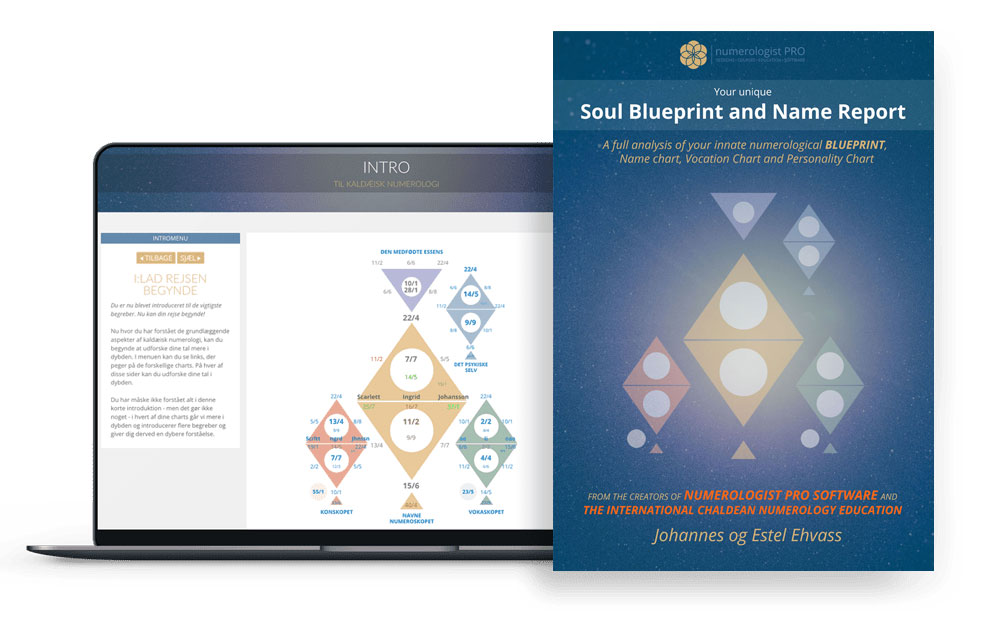Dorotheus of Sidon: The Luminous Legacy of a Hellenistic Astrologer

Estel Ehvass
Welcome, dear reader! Venturing into the world of Hellenistic astrology feels akin to stepping into a grand amphitheater where the stars narrate tales of ancient wisdom. Originating from the Hellenistic period of ancient Greece, this form of astrology is the foundation for many of the astrological systems we recognize today. What has always captivated me is its intricate blend of mathematics, philosophy, and spiritual insight. The Greeks, with their keen observations and profound understanding, created an astrological system that not only looked at the cosmos but also sought to explain the very essence of our souls. Join me as we delve into this fascinating realm, where celestial alignments speak of human experiences, and where the cosmos and character intertwine in the dance of destiny.
Dorotheus of Sidon: The Luminous Legacy of a Hellenistic Astrologer
Introduction

Amidst the pantheon of Hellenistic astrologers, Dorotheus of Sidon stands out as a figure of significant influence and reverence.
While less commonly recognized in popular culture than some of his counterparts, Dorotheus’s contribution to the foundation of Western astrological tradition is undeniably profound.
His work, “Carmen Astrologicum”, is among the earliest comprehensive guides on horoscopic astrology.
Let’s embark on a journey to understand the life, work, and lasting impact of this pioneering astrologer.
The Life of Dorotheus
Not much is definitively known about Dorotheus’s personal life. He lived during the 1st century CE, a period marked by the flourishing of Hellenistic thought. Born in Sidon – an ancient Phoenician port city, now in modern-day Lebanon – Dorotheus was a product of the cross-cultural confluence that defined the post-Alexandrian world. It was an era of profound intellectual and cultural exchanges between the East and West.
While the details of his life remain obscure, what shines through is his commitment to the art and science of astrology. Dorotheus was undoubtedly a well-traveled scholar, absorbing diverse astrological traditions from Babylon, Egypt, and Greece, which he would later synthesize into his seminal work.
Carmen Astrologicum: An Overview
“Carmen Astrologicum”, Dorotheus’s magnum opus, is an elegantly penned didactic poem originally written in Greek, although it survives mainly in an Arabic translation. This work is organized into five books, each delving into various facets of astrology, from the foundational principles to intricate predictive techniques.
Book I
It lays down the groundwork for the entire treatise. Here, Dorotheus introduces the signs of the zodiac, the planets, their natures, and basic significations. He also touches upon fundamental concepts like rulerships, exaltations, and the triplicity lords of the sects, essential for horoscopic delineation.
Book II
Dorotheus delves into matters of love, marriage, and children in this volume. He presents a combination of sign-based interpretations and more complex techniques like the Lots (or Arabic Parts) of marriage and children to provide nuanced insights into these areas of life.
Book III
This book focuses on the length of life calculations, a critical and challenging component of Hellenistic astrology. Drawing from earlier Babylonian traditions and incorporating Hellenistic innovations, Dorotheus offers methods to determine the potential lifespan of the native, relying heavily on the hyleg, or giver of life, and its supporting planets.
Book IV
Here, Dorotheus turns his attention to various topics ranging from travel and eminence to illnesses and death. By employing intricate techniques, such as distributions through the bounds and zodiacal releasing, he showcases the predictive capabilities of Hellenistic astrology.
Book V
The concluding volume is a miscellaneous collection of aphorisms, addressing a wide array of topics not covered in the earlier books. This section is particularly rich in delineation techniques and offers valuable insights into areas like profession, wealth, and friendships.
Dorotheus’s Sources and Influence
What makes “Carmen Astrologicum” a remarkable work is not just its comprehensive nature but also its synthesis of diverse astrological traditions. Dorotheus acknowledged his debt to earlier Babylonian astrologers, often citing their “sayings” to bolster his interpretations. His work also showcases Egyptian astrological traditions, especially in the realm of Lots and decanic astrology. But it’s the Hellenistic imprint – the systematized, rational approach – that gives his work its distinctive flavor.
Dorotheus’s legacy can be felt in the subsequent developments of Western astrology. Later Hellenistic astrologers, such as Vettius Valens and Claudius Ptolemy, were undoubtedly aware of his work, with Valens even referencing him directly. The transmission of his work into Arabic ensured its survival and continued influence during the medieval period, with prominent Islamic astrologers like Al-Tabari and Al-Qabisi drawing heavily from it. Through these channels, Dorotheus indirectly shaped the astrological traditions of the Latin West and India.
Comparative Relevance in Modern Astrology
In contemporary astrology, the revival of traditional practices has led to a renewed interest in Dorotheus. His work offers modern practitioners a bridge to the foundational principles of horoscopic astrology. While certain techniques and concepts may seem foreign to those trained in modern schools, the underlying themes of fate, agency, and cosmic alignment resonate deeply.
Modern astrologers looking to enrich their practice with traditional techniques will find “Carmen Astrologicum” a treasure trove. The delineation methods, especially concerning topics like marriage, career, and life purpose, offer nuanced perspectives that can be integrated into current astrological consultations.
Conclusion
Dorotheus of Sidon, with his monumental “Carmen Astrologicum”, has carved a niche in the annals of astrological history. As a bridge between the ancient and the modern, his work encapsulates the spirit of Hellenistic astrology – a harmonious blend of art and science, intuition and intellect. For those seeking to delve deeper into the roots of astrology, Dorotheus offers a guiding light, illuminating the path with his poetic wisdom and unparalleled expertise.

Johannes & Estel: Renowned authorities in Numerology, Astrology, and the esoteric arts. As the founders of Scandinavia's premier Numerology school, we're delighted to share our insights through this curated series on astrology. Dive in and discover the stars.
The Worlds Most Advanced Numerology Report

Your birthdate reveals your unique life purpose, potentials, talents, weaknesses, and karma in this life.
Your names show what you attract into your life regarding your career, relationships, happiness, money, and success.
GET THE REPORT HERE
Introduction to Astrology
The history of Astrology
Moving beyond deterministic astrology
Foundation of Astrology: Planets, Signs and Houses
Astrology and the Holographic Universe
The Holographic Universe
The Human Psyche as a Mirror to The Solar System
The Human Body as a Mirror to The Star Signs
Astrology Background
Egyptian Astrology
Mayan Astrology
Chinese Astrology
Indian Astrology - Jyotish
Celtic Astrology
Tibetan Astrology
Mesopotamian Astrology
Early Mesopotamian Astrology: The Dawn of Celestial Divination
Enuma Anu Enlil: The Epicenter of Babylonian Celestial Omen Interpretation
Babylonian and Chaldean Astrology
Babylonian and Chaldean Astrology
Chaldean influence and evolution
Chaldean Wisdom: Safeguarding and Transmitting Astrological Knowledge
Hellenistic Astrology
Hellenistic Astrology background
Claudius Ptolemy and Tetrabiblos
Vettius Valens
Dorotheus of Sidon
Persian Astrology
Persian Astrology background
Sassanian Astrology
Late Antiquity and The Transition Period
Late Antiquity and The Transition Period
Hellenistic to Islamic Transition: The Torchbearers of Astrological Wisdom
Islamic Golden Age
Arabian Astrology Background
Arabian Astrology Contributions
Medieval Astrology
Introduction: The Medieval Cosmos
Monastic Preservers: Astrological Knowledge in the Dark Ages
Astrology in Medieval Medicine
Kings, Queens, and Constellations: Astrology in the Medieval Court
The Church and the Stars: A Contentious Relationship
Universities and Scholastic Pursuits: Academic Astrology
Astronomy & Astrology: Tools of the Trade
Medieval Astrological Houses and the Synthesis of Traditions
Transition to the Renaissance: Humanism and the Celestial Arts
Reflections: Medieval Astrology's Echoes in Modern Practice
Astrological Art of the Middle Ages
Famous Medieval Astrologers
Medieval Astrological Texts
Renaissance Astrology
Renaissance Humanism and Astrology
Scientific Advancements and Astrology
The Social Fabric: Astrology in Everyday Renaissance Life
Court Astrologers of the Renaissance
Controversies and Conflicts: Astrology Under Scrutiny
Renaissance Texts and Authors: Continuation of a Tradition
Astrology and Art: Celestial Imagery in the Renaissance
Renaissance Astrological Practices: Evolutions and Innovations
End of the Renaissance: The Gradual Decline of Astrological Influence
Renaissance Astrology's Echo in the Modern World
Enlightenment Astrology
Introduction: The Enlightenment and Astrology
Challenging the Stars: Astrology's Critics during the Enlightenment
Astrology and the New World
Astrology in the 19th Century
The Dawn of Psychological Astrology
Astrology in the 20th Century: A Modern Renaissance
Astrological Associations and Schools
Modern Controversies and Astrology
Astrology and Popular Culture
Astrology and Technology
Current Trends and Future Directions in Astrology
Conclusion: Reflecting on Astrology's Evolution
The Planet Significances
The Sun in Astrology
The Moon in Astrology
Mercury in Astrology
Venus in Astrology
Mars in Astrology
Jupiter in Astrology
Saturn in Astrology
Uranus in Astrology
Neptune in Astrology
Pluto in Astrology
Chiron in Astrology
Black Moon Lilith in Astrology
Pars Fortuna in Astrology
Ceres in Astrology
Houses in Astrology
Introduction to Astrological Houses
The Angular Houses
The Succedent Houses
The Cadent Houses
The 1st House
The 2nd House
The 3rd House
The 4th House
The 5th House
The 6th House
The 7th House
The 8th House
The 9th House
The 10th House
The 11th House
The 12th House
Interaction Between Houses
Derived Houses, House Rulers, and Interceptions
Conclusion: Synthesizing House Knowledge
All Materials © 2023 & 2024 Numerologist PRO
Terms of Service: Information provided by Numerologist PRO and/or from this web site is not intended as advice (medical, psychological, financial or other), nor is it intended to replace your work with a qualified professional (medical or otherwise). You should maintain your relationship with your providers and consider the services of this site as informational only. Any information, stories, examples, or testimonials presented on this website do not constitute a warranty, guarantee, or prediction regarding the outcome of an individual. This web site is a sharing of knowledge and information of numerology/energy work based on the experiences of Numerologist PRO. You are encouraged to make your own decisions based on your own research and inner guidance. By booking and receiving services, you agree to fully release and hold harmless Numerologist PRO and all it's affiliated numerologists from and against any liability or claim that may arise out of or in connection with their service(s).
Numerologist PRO © 2021

CONTACT
numerologist@numerologistpro.com
LIKE US, and get free numerology tools, info about your personal numbers, best business dates of the year - and more!
YOUR FREE NUMEROSCOPE CHART
Enter your name and email below and get access to our free online numerology chart tool.